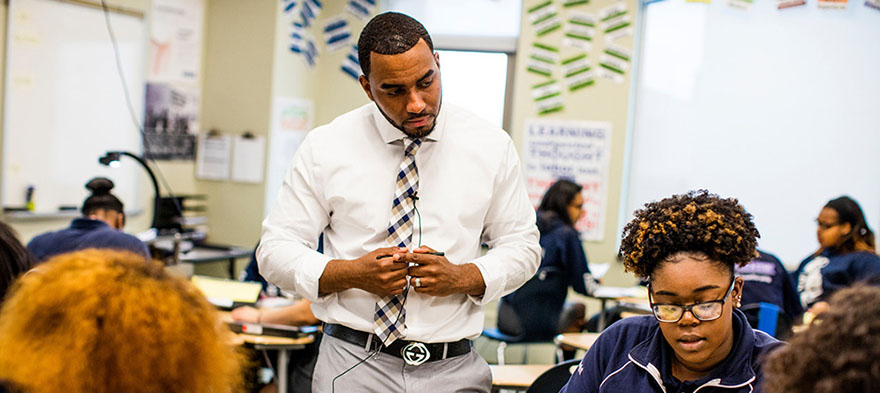
Art Worrell is Director of 5-12 History across Uncommon Schools, a network of 52 high performing charter schools serving 18,000 students in New Jersey, New York and Massachusetts.
The fight for educational equity has never been just about schools. The real North Star for this work is providing opportunities for each child to thrive into adulthood. This means that our advocacy...
Your donation will support the work we do at brightbeam to shine a light on the voices who challenge decision makers to provide the learning opportunities all children need to thrive.
Ed Post is the flagship website platform of brightbeam, a 501(c3) network of education activists and influencers demanding a better education and a brighter future for every child.
© 2020–2024 brightbeam. All rights reserved.